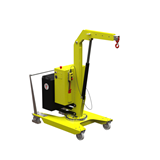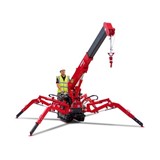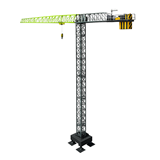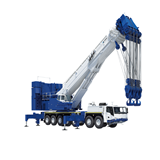But like 'green' initiatives, actions speak louder than words, and that is where many drug and alcohol policies are currently failing.
Jimmy* is a crane operator who has worked for a civil contractor in NSW for the past five years. He works hard, is well educated, and leads a team of men working across a number of mid-size engineering projects in and around the Sydney CBD.
Jimmy is also a habitual and heavy marijuana smoker, who is proof positive that not every organisation's drug and alcohol policy is up to scratch. While Jimmy may not be indicative of an entire industry, neither is he the exception.
According to Jimmy his employer – or at least his direct boss – is aware of his marijuana use, but doesn't believe it affects the judgement or performance of an otherwise valued employee.
"They know I smoke. There are drug tests but I'm told about them in advance. I just disappear for a while when they are happening," Jimmy told IndustrySearch on the condition of his anonymity.
"I don't think it affects the job I do, people will say it does, but they don't do my job and they don't know how my body handles it.
"I've been smoking a lot of weed (marijuana) for 10 or 12 years on and off, and I know my tolerance is a lot better to it than most people's.
"I don't smoke right before I'm going to work, it's just the night before, it helps me relax and it helps me sleep. By the morning I am fine."
For those of us who prefer to heed warnings to 'not operate heavy machinery while under the influence of alcohol or drugs', Jimmy's actions seem irresponsible beyond belief. That his employer chooses to overlook his habit, is no less foolish.
Under NSW law Jimmy's employer could be liable for a fine up to $550,000 for a breach of the Occupational Health and Safety Act 2000. His boss could face an individual penalty of up to $55,000, but the human cost of an accident where Jimmy's drug habit was a contributing factor is incalculable.
It's a scenario that Michael White, Managing Director of Frontline Diagnostics is all too familiar with. Frontline Diagnostics conducts drug and alcohol screening as well as helping companies formulate and execute effective drug and alcohol policies.
"We've found marijuana bongs sitting up in the top of cranes. There is about 18 per cent drug use that we've found in the building and construction industry – almost 1 in 5 people – stoned out of their brain on the job, and that's where they are using seriously dangerous equipment," White told IndustrySearch.
White said certain industries – building and construction, transport, mining and shipping for example – were now focusing on formulating effective drug and alcohol policies because of the obvious risks involved, but that still many companies were uncomfortable knowing how to broach the subject with their employees, and union officials.
"Generally companies don't want to touch the problem because they are testing their own people and in some cases you are challenging their lifestyle, and then you have to work with those people on a day-to-day basis," White said.
"Every time I've gone into a job I've had to fight a union, and for a lot of companies that is very daunting for them.
"They have to balance that against if something does go wrong am I going to lose my house – it really does come down to that.
"The union won't stand by them if there is an accident, they will go for them. The double standards that are in the workplace are very daunting for most directors."
Which is where, White says, a third party expert can help.
"If you bring in an outside company, we are divorced from that emotional contact with the person, and it's fraught with legal potential. So we know exactly what we can do and can't do and how we do it," he said.
"When we go and do chain of custody forms that will be attached to subpoenas in court we have got to know what we are doing.
"We realised this about five years ago and have started introducing a Drug-Safe Workplace program, where we actually manage the whole program from the beginning right through until the client doesn't have a drug problem, and then we still manage it."
White said many companies still baulked at the potential expense of executing a robust drug and alcohol policy, and to those company directors his message is simple.
"I saw a wonderful message the other day – if you think using a professional is going to be expensive, try using an amateur," White cautioned.
According to White, there are six steps in ensuring your drug and alcohol policy is worth the paper it's written on, starting with making sure the policy is correct and robust enough to stand up in court.
From there his company conducts employee Q&A sessions and induction training; trains supervisors to perform pre-employment testing; establishes an employee assistance process to assist or counsel employees who may have a problem; and finally blanket drug testing for everyone from the Managing Director down.
"If you don't do it that way, you can talk as much as you like, but it doesn't count for anything. The staff have to know that you are fair dinkum and that you are going to be tested…it focuses them," White said.
Last year the Australian Drug Foundation released a policy paper that estimated alcohol and drug use was costing Australian businesses $5.2 billion a year in lost productivity and absenteeism alone. The paper also reported that alcohol use was responsible for five per cent of all Australian workplace deaths, and up to 11 per cent of all non-fatal injuries.
Head of Workplace Services at the Australian Drug Foundation, Phillip Collins, said despite the alarming statistics he, like White, was also now seeing some companies starting to take their drug and alcohol policies seriously.
"Those policies are not a stationary document, they must be communicated widely within the organisation and understood, and dovetailing in to some education and training programs," Collins said.
"We are also working closely with organisations that are evaluating the effects of putting in robust policies and training so they can determine the positive outcomes of reducing the costs and impact of alcohol and drugs in the workplace.
"These organisations that are putting down good practices, they are putting it into their wellbeing programs and they are also engaging their employees and getting feedback from them."
Collins said businesses who implement best practice alcohol and drug programs had to use an approach tailored for their workplace.
"Each workplace has its own unique customs, practices and conditions which impact the workplace culture, and drug use, so there is no one-size-fits-all answer unfortunately," he said.
"Workplaces need to develop and implement a sound formal written alcohol and drug policy which fits the organisation's needs and addresses workplace specific risks."
*Jimmy is not his real name
- Suppliers
- New to IndustrySearch? Book a Demo
- Advertise with us
- Login
- Email Marketing
- Buyers
- Get Quotes
- Articles & Ideas
- Login
- Subscribe to newsletter
- My Details
- Get Quotes
- Automation & Control
- Automotive Workshop Equipment
- Cleaning Equipment
- Construction & Heavy Machinery
- Conveyor Systems & Components
- Cranes & Hoists
- Electrical & Power Generation Equipment
- Electronic Components
- Farming & Agriculture
- Food & Beverage Processing
- Forklifts & Attachments
- Hydraulic & Pneumatic Equipment
- Industrial Materials, Tools & Components
- Industrial Pumps
- IT Hardware & Industrial Computing
- IT Software & Applications
- Laboratory Equipment & Instruments
- Manufacturing & Industrial Equipment
- Material Handling & Lifting
- Metalworking & Machining
- Mining Equipment & Machinery
- Packaging & Labelling Machinery
- Pallet Management
- Personal Protective Equipment
- Security & Surveillance
- Test & Measurement
- Transport Equipment
- Trucks & Trailers
- Warehouse Storage & Racking
- Waste & Environmental Management
- Welding Machines & Accessories
- Woodworking & Joinery Machines
- Workplace Equipment
- Workplace Safety Equipment
- Get Quotes
- Automation & Control
- Automotive Workshop Equipment
- Cleaning Equipment
- Construction & Heavy Machinery
- Conveyor Systems & Components
- Cranes & Hoists
- Electrical & Power Generation Equipment
- Electronic Components
- Farming & Agriculture
- Food & Beverage Processing
- Forklifts & Attachments
- Hydraulic & Pneumatic Equipment
- Industrial Materials, Tools & Components
- Industrial Pumps
- IT Hardware & Industrial Computing
- IT Software & Applications
- Laboratory Equipment & Instruments
- Manufacturing & Industrial Equipment
- Material Handling & Lifting
- Metalworking & Machining
- Mining Equipment & Machinery
- Packaging & Labelling Machinery
- Pallet Management
- Personal Protective Equipment
- Security & Surveillance
- Test & Measurement
- Transport Equipment
- Trucks & Trailers
- Warehouse Storage & Racking
- Waste & Environmental Management
- Welding Machines & Accessories
- Woodworking & Joinery Machines
- Workplace Equipment
- Workplace Safety Equipment
Trusted by 1.2 million Australian industrial buyers
Buyers
- Discover products & solutions
- Login
- Subscribe To Newsletter
- Browse All Products
- Read Articles
Suppliers
Advertise
- Promote your products & solutions
- New to IndustrySearch? Book a Demo
- Login / Forgot Password
- Advertise Your Products
- Success Stories
- Email Marketing
- Suppliers
- Advertise with us
- Login
- Email Marketing
- Buyers
- Get Quotes
- Articles & Ideas
- Login
- Subscribe to newsletter
- My Details
Get Quotes
- Automation & Control
- Automotive Workshop Equipment
- Cleaning Equipment
- Construction & Heavy Machinery
- Conveyor Systems & Components
- Cranes & Hoists
- Electrical & Power Generation Equipment
- Electronic Components
- Farming & Agriculture
- Food & Beverage Processing
- Forklifts & Attachments
- Hydraulic & Pneumatic Equipment
- Industrial Materials, Tools & Components
- Industrial Pumps
- IT Hardware & Industrial Computing
- IT Software & Applications
- Laboratory Equipment & Instruments
- Manufacturing & Industrial Equipment
- Material Handling & Lifting
- Metalworking & Machining
- Mining Equipment & Machinery
- Packaging & Labelling Machinery
- Pallet Management
- Personal Protective Equipment
- Security & Surveillance
- Test & Measurement
- Transport Equipment
- Trucks & Trailers
- Warehouse Storage & Racking
- Waste & Environmental Management
- Welding Machines & Accessories
- Woodworking & Joinery Machines
- Workplace Equipment
- Workplace Safety Equipment
Get Quotes
- Automation & Control
- Automotive Workshop Equipment
- Cleaning Equipment
- Construction & Heavy Machinery
- Conveyor Systems & Components
- Cranes & Hoists
- Electrical & Power Generation Equipment
- Electronic Components
- Farming & Agriculture
- Food & Beverage Processing
- Forklifts & Attachments
- Hydraulic & Pneumatic Equipment
- Industrial Materials, Tools & Components
- Industrial Pumps
- IT Hardware & Industrial Computing
- IT Software & Applications
- Laboratory Equipment & Instruments
- Manufacturing & Industrial Equipment
- Material Handling & Lifting
- Metalworking & Machining
- Mining Equipment & Machinery
- Packaging & Labelling Machinery
- Pallet Management
- Personal Protective Equipment
- Security & Surveillance
- Test & Measurement
- Transport Equipment
- Trucks & Trailers
- Warehouse Storage & Racking
- Waste & Environmental Management
- Welding Machines & Accessories
- Woodworking & Joinery Machines
- Workplace Equipment
- Workplace Safety Equipment
Trusted by 1.2 million Australian industrial buyers



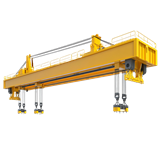
-160x160-state_article-rel-cat.png)
-160x160-state_article-rel-cat.png)

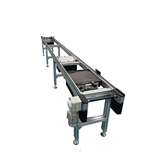








-160x160-state_article-rel-cat.png)



